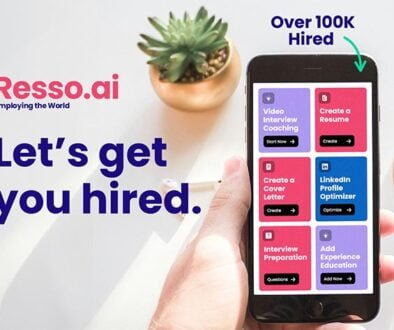Lessons I’ve Learned From Years of Self-Employment
Years ago, I took the difficult decision to leave my 10-year corporate marketing position and start my own firm. At the time, I was employed by a well-known global consumer ice cream brand owned by a large international corporation. However, my growing disillusionment with my job, which focused on increasing ice cream consumption, combined with my interest in professional coaching and my father’s death, prompted me to leave that stable life behind to start my own independent career consultancy, which focuses on assisting people with career transitions.
Aside from hiring a few freelancers to assist me with specific duties, I’ve been flying solo ever since, and this chapter of my work has been one of the most eye-opening. Self-employment can be demanding, difficult, and exhausting at times, but it is also rewarding, fulfilling, and enriching.
Over the last decade, I’ve learned a lot about myself; the role work plays in life and the value of prioritizing your personal and professional goals. These ten lessons stand out as among the most important:
Every experience is a learning opportunity.
Looking back on my previous life as a full-time corporate employee, I realize I lived in a bubble of carefully controlled professional training, events, surroundings, and teams, which I confess is a benefit I sometimes miss. Large companies provide relatively easy and consistent access to top-tier training and institutionalized skill development.
One of my anxieties after leaving my corporate career was that I would lag behind my peers or lose my professional edge. Especially in the early stages of self-employment, I didn’t have a large training budget or access to the same level of training. The quality of offerings and experiences varied greatly, and I had numerous instances while self-employed that simply missed the mark. Nonetheless, I realized that each taught me something.
For example, at a free business owner’s training program in London given by someone who, in the end, appeared to be a scam, I gained valuable lessons about stage confidence. Another example was hiring a freelancer who misrepresented her skills to me, which taught me to thoroughly evaluate candidates before hiring them. I also had my fair share of client engagements that did not go as planned, which taught me how to evaluate future assignments more accurately. I’ve also used a variety of nimble digital tools to operate my firm in addition to the typical Microsoft Office Suite of products, which has given me a completely new approach to work.
With the correct attitude, you can achieve significant personal and professional growth while self-employed, not in spite of, but because of, the dynamic nature of running your own firm.
With pricing, fairness is king.
Pricing has always been one of the most difficult things for me to figure out as a business owner. Even after ten years as a service provider, I still struggle with determining where to put my fees. You don’t want to set them too low and undervalue yourself. However, you do not want to set them so high that you are priced out of the market.
Most clients have informed me that I do not charge a low price for my services, but many friends and family have told me that I could charge more. As a former marketer, I understand the idea that a product or service is worth whatever someone is willing to pay. I’m conscious that setting high rates implies a specific positioning; therefore, I’ve always gone on the side of charging higher fees rather than lesser costs to not only signal the quality of my services but also force me to bring my A-game.
At the same time, I have been very careful not to be greedy. Fairness is a core principle of mine; therefore, when I establish my prices, I always question myself if I believe my charges are fair to both me and my clients based on our respective situations. And, yeah, it’s a difficult balancing act that I have yet to master.
When unsure about where to establish your pricing, remember that fairness is your best guide.

Discipline trumps talent.
I’ve met many talented people throughout the years. Some people are particularly skilled with numbers. Others are incredibly charismatic, remarkably articulate, or highly efficient. Others have attended Ivy League institutions or held high-profile roles with attractive portfolios from top-tier firms.
I would never consider myself the most talented or accomplished person in any room, especially when it comes to running my own business. I’ve made a lot of mistakes and oversights throughout the years. As a business owner, few things come easy to me.
However, one of the reasons I believe my business has gradually developed over the years is due to my sheer guts and resolve to put in a constant, relevant amount of effort every day. While I’m not the brightest guy around, I believe myself to be quite disciplined as a self-employed business owner. I do take breaks, but I rarely slack off. While I like the flexibility of self-employment, I keep to my own deadlines. And, while I establish my own working hours, I am completely focused on the things at hand during those hours.
Self-employment requires more than just skills, talent, and training. For your business to survive and develop, you must first and foremost be committed and consistent.
Progress takes longer than you think.
Throughout my years of self-employment, everything has taken longer than I expected. My newsletter subscriptions expanded more slowly than I expected. Student enrollment in my online courses took longer than I anticipated. My social media followers grew slower than I expected. My podcast’s listenership took years, not months, to reach an audience size that I thought was meaningful. My income took longer than I expected to obtain and eventually surpassed my previous corporate wage.
As a result, I’ve tried to let go of time-based success criteria. Most tasks take longer than expected, especially when you’re working alone. At the micro level, with no larger team, you frequently get less done than you want each day since you must deal with every single issue that arises. Whether your website is not working properly, an invoice has not been paid appropriately, or your machine has stopped working, it is your responsibility to address the issue. On a larger scale, without the backing and resources of a larger organization, you are restricted in what you can accomplish on your own.
Being realistic about what you can feasibly achieve in a given time frame will help you retain a good business view, even if you aren’t getting the traction you want as quickly as you would like.
Things can always be better. And worse.
Especially in the early years of self-employment, I frequently fell into the trap of believing that my firm was not developing at the rate I desired. Sometimes, I wish I had a larger following. Or maybe my podcast had more listeners. Or my online classes had a higher enrollment. Or at least one of my pieces went viral (I am still waiting for this to happen).
Beating yourself up for not accomplishing as much as you desired or as quickly as you hoped is all too easy, especially when your comparison set includes folks in the popular press who appear to be smashing it.
When I’ve felt unhappy about some part of my work, progress, or growth, I’ve always tried to remind myself that while things could always be better, they might also be worse. I’m doing well in the grand scheme of things. I’ve done a lot, and while the aspirational side of me constantly wants more, I’ve learned to be satisfied with less.
Taking stock of everything you’ve accomplished will help you enjoy the road more and appreciate what you have rather than obsessing over what you don’t have.

Every business decision involves trade-offs.
Few of my decisions as a self-employed person have been uniformly correct or incorrect. Instead, I’ve made decisions that benefit the business and life I’m attempting to build. Other coaches have asked me why I have chosen not to expand my team. Friends have inquired why I do not accept advertisements on my podcast. Followers occasionally question why I didn’t write the book I stated I would. Others ask why I don’t outsource more business duties than I already do.
Any business decision entails trade-offs. Choosing to work alone and not recruit workers has required me to decline client jobs, particularly recently, but I’ve managed to maintain the autonomy I sought from self-employment. My podcast’s lack of paid commercials means it does not produce direct cash, but it does allow listeners to hear these career-changing stories without being distracted. Not publishing the book was a missed opportunity, but it allowed me to spend more time with my daughter while schools were closed due to the pandemic. Not outsourcing tasks like invoicing, presentation creation, or content marketing has created a bottleneck in how much I can do on any given day, but it also gives me complete control over client-facing interactions, allowing me to shape my reputation more precisely, which has served my business well.
If you’re ever having trouble deciding what’s “right” for your business, remember that it all comes down to what you want for yourself, your clients, and the people in your life.
Benefits Come in many forms.
One of the hardest parts of leaving my corporate marketing career was giving up the perks that come with working for a big company—benefits, retirement packages, a lovely office, limitless coffee, and free food. Even small items such as office supplies.
While I don’t turn down an invitation to a sophisticated business party with a beautiful supper, I’ve come to appreciate the other benefits of self-employment. I enjoy having control over my schedule. I enjoy being able to voice my thoughts freely and customize my presentations without having to follow corporate templates or talking points. I prefer spending school holidays with my family without needing to track vacation days. I like the ability to choose which customer engagements to take on. I appreciated being a very involved father during my daughter’s childhood. And I enjoy performing work that is actually significant, purposeful, and gratifying.
Luxury is frequently connected with material assets. However, freedom, autonomy, and control are actually valuable.
Yes, self-employment can be financially rewarding.
Money was not one of my key motivators for pursuing self-employment. Freedom, autonomy, flexibility, and doing more meaningful work were among the top priorities. However, if you enjoy your profession, you can make a good life doing it.
Yes, I ran a very lean, low-budget operation in the early days of my own business, when my income was significantly lower than it was in my previous global marketing job. We originally downsized our home, and I significantly cut all discretionary expenditures in my life. I kept track of my finances and continue to do so.
While it did not happen quickly, my income gradually returned to and eventually exceeded my previous pay. I now sometimes make more in a single day than I did in a month in the corporate world. I now earn more in a month than I did in a year. And yet, while I can now say this, I don’t think I have everything worked out.
I continue to contribute 100% to my business every day because, as the epidemic has shown, everything can change in an instant. Nothing lasts forever. Every business, including mine, is sensitive at best. Clients are far easier to lose than gain. I’m not immune to external factors that can cause my business to fail. As a result, I never become too proud of my accomplishments because it only takes a minor setback to throw me off course.
Yes, being self-employed allows you to earn a reasonable living. However, like with any small business, things can change rapidly, so I never take anything for granted.
Controlling one’s own destiny is a form of stability.
I used to believe that a full-time corporate job provided greater professional stability and job security than self-employment. A sense of security comes from having a consistent paycheck, employee benefits, and the safety net of a huge, established corporation that has been there for decades. Self-employment, on the other hand, can feel less predictable because your income can fluctuate dramatically as you strive to find work, maintain a consistent stream of clients or customers, and arrange your own health and retirement benefits.
However, what constitutes stability varies according to the individual. Yes, it is widely believed that full-time employment at a corporation can provide a sense of security and dependability. However, sudden firm reorganizations, budget cuts, or rounds of layoffs, such as those we’ve seen in the news recently, show that full-time employment is not immune to unpleasant turbulence.
I’ve had unexpected setbacks while running my own business, such as all of my paid speaking events being canceled during COVID or a client canceling a project. However, in these cases, I had complete control and authority to change course, diversify my income streams, or rearrange my service offerings.
Self-employment does not come without danger. At the same time, I find it comforting that I don’t have to rely on a job to determine my future.
Running your own business is a true privilege.
Not everyone has the flexibility or personal circumstances to venture into the world of self-employment. Make no mistake: starting your own business involves risk, financial uncertainty, and even loneliness as you juggle all of the duties of doing everything yourself, especially in the beginning.
However, self-employment has numerous advantages, including a sense of purpose, control over your job, the ability to determine your own schedule, the elimination of earning constraints, and the ability to transform your passions into a source of income. Building a business around something you enjoy doing can provide a sense of pleasure and purpose.
I’ll agree that I feel busier and more alone today than I did at my corporate job. Over the last ten years, I’ve had several explosive episodes that have either kept me awake at night or caused me to scramble during the day. But, overall, I feel a lot less worried and more at ease at work, thanks to the fact that I’ve developed a business that reflects the person I want to be and the family life I want to have. I simply feel healthier, both physically and emotionally.
When things do not go as planned in my business, I can be hard on myself. But I constantly try to remind myself to take a break every now and then and reflect on how far I have come. To appreciate the benefits of self-employment. And to always be grateful for the opportunity to leave my own mark in a way that inspires me every day.
Here are some related articles from your friends at Your Career Place.
https://yourcareerplace.com/how-to-increase-your-learning-speed-using-context-based-learning/
https://yourcareerplace.com/leadership/lead-like-a-pro-managing-meetings-for-success/




